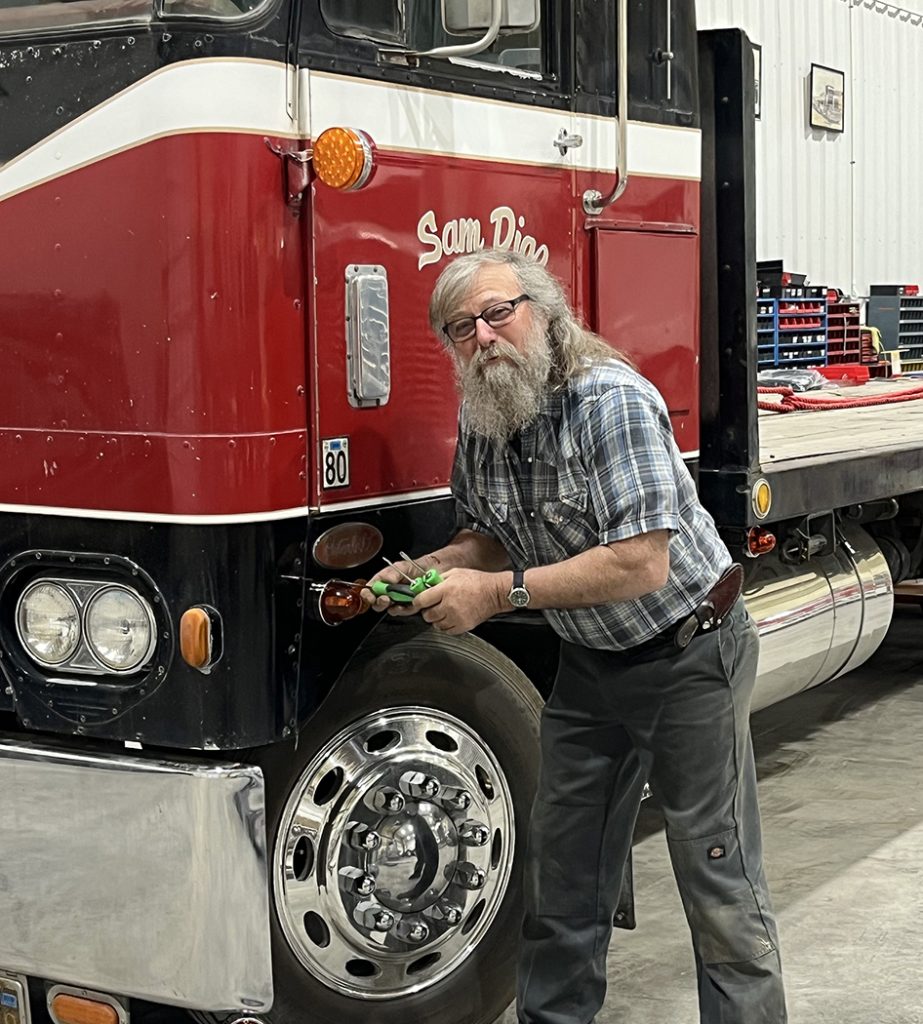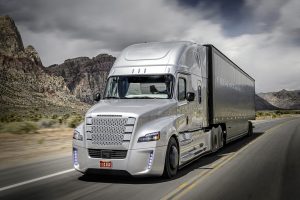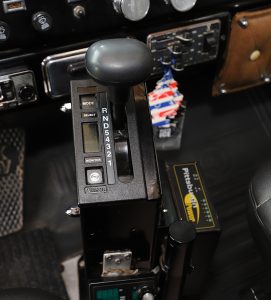
April showers bring May flowers! That’s what the farmer’s almanac says, but I’m ready to spring ahead and skip the wet weather. Just last month we were still shoveling snow in some parts of the country and now we are bogged down in the mud. Look on the bright side – two months from now we will be reminiscing about these cooler temperatures back in April and not being overrun with bugs. You never know when a rogue Florida mosquito will get off course and land in your backyard. Some of them are the size of a helicopter! But really, it’s all part of the cycle, much like the game of trucking, we will endure all it has to offer and, in the end, rise victorious. That’s my story and I’m sticking to it!
Spring always seems to bring out a positive energy in me, so let’s jump into some good thoughts. On a positive note, freight is on the rise and there has been a slight tick upwards in the rates. We have seen some stability in the fuel markets and, at the very least, the prices have stopped rising. I’m still holding out for diesel prices to fall under $2.00. I wouldn’t expect that to happen for a while, as our energy sector is still trying to recover from the unforeseen but real consequences of the NGD (New Green Deal). We didn’t get into this situation overnight, so the recovery will also take some time to correct.
If I remember right, I read that a gallon of crude oil takes about six months from capture (drilling and tapping) to processing, storage and transfer, before it appears on the market. If that still holds true, at the earliest we could see some relief in the third quarter of this year. Most economists predict it will be into the second quarter, maybe even the third of next year before the overall economy starts to show firm signs of real recovery. The question is: can we survive until then?
Before we start pointing fingers and placing blame on any one group, we might want to thank God above that our nation is showing signs of recovery. As with any illness you must first diagnosis the symptoms before you can prescribe a treatment. There is plenty of blame to go around. Most of the trouble started with the Covid-19’s shutdowns, and then things snowballed from there. I think we can say with some authority if something like that were to happen again, we would probably act or react differently. That’s experience talking, and anytime we can draw on firsthand knowledge, most of us will make better choices. Speaking of bettor choices, did you know if you eat healthy food and exercise regularly you will still die – it will just take longer.
I have been out of the driving game for a few months so that gave me time to do some reading and catch up on many TikTok videos. I happened on to one called “Old is Gold” which was basically a lesson in marketing. It was presented by a young woman who tried to present her modern concepts of marketing using up to date technology (the Internet). She presented it to the management of an established design company, run by mostly older generation executives. Throughout her presentation, she was interrupted by an older senior member who constantly repeated, “No, we have always done our advertising a different way. We are not interested in new ways, and besides, your too young to know anything about marketing.” I mention this video because I can draw a parallel between this marketing video and the truck drivers of today.
I am one of the old guard or “old school” drivers of yesteryear. Like so many others, I have fought technology at every turn. I still drive an old square hood tractor with tall tires and plenty of horsepower! If given the choice, I would choose not to use the logbook either, but since we have to record our duties, I elect to use paper logs. Until they change that too, then I’m going outlaw! I don’t have disc brakes or even use air conditioning, but I guess I might be preaching to the choir here (well, some of you).
You may be asking yourself why any of this is relevant? Just a few short years ago, I would have been that senior executive decrying any change. I’m sure all of us have heard the old adage, “You can’t teach an old dog new tricks.” That may be true in some cases, however, after Covid, everything has changed. Our economy tanked, the freight base dried up, and many owner operators have parked their trucks or sold them. Those that didn’t sell out may have been forced to suspend their authority and lease on with a major transportation company. Therefore, their classification has changed from CEO (Chief Executive Officer) to IC (Independent Contractor), and in doing so, they must follow the rules established by the company. Either way, times are changing.
If by chance you are one of the older or more senior drivers, like me, you are going to have to expect not only new ideas, but these ideas being presented by much younger people. These “new kids on the block” will be the ones rewriting the rules. In general, what I’m implying is, “Old may be gold, but new may also be the thing to do.” This is for the no longer owner operator who still needs to earn a living. Sure, you can look outside of the industry or try something else, but how long do you think that is going to last? Starting at the bottom of the pecking order is not easy, and neither is replacing a driver’s paycheck. After all, there is still a considerable difference between entry level hourly workers and commercial truck drivers.
How many of you remember the comedy schtick by The Blue Collar Comedy Tour “Here’s your sign”? Are you listening, drivers? I will be the first to admit we have too much government intervention in our industry, and not just in the driver’s compartment, but in all aspects of development and design. The more control we hand over to the machine in the name of safety, the less safe our roads become, but some of the problems could be caused by an uninformed or inexperienced workforce.
Inexperience can be misleading. I will use myself as an example. I don’t use an electric logbook, not because I can’t or don’t know how to, but because I choose not to. I have never had to transition to it. I run my own company, and because of its age, my truck is still exempt from the regulations. If I were to lease to ABC Trucking, they most likely will require an electronic recording device as a condition for employment. Due to government regulations, almost all medium to large truck companies require their use. This might be looked at as an inconvenience to me, but not something that will greatly affect my ability to perform the task as driver.
Now, if you take me out of my old familiar everyday driver (2000 Peterbilt conventional) and give me one of the brand-new high tech Rubbermaid rides with all the bells and whistles, now that’s altogether something different. I’m hearing from some of my friends and colleagues who have years of driving experience saying they don’t feel safe driving the most modern, up-to-date trucks they have been given to operate. It’s not that they don’t know how to drive, but rather they aren’t sure how to react to the intervention of the machine. This really is becoming problematic with older drivers. To an engineer of these ultra advanced and, in some cases, self-driving trucks, this may look like science to the rescue.
These vehicles may be safe in a controlled environment when everything works fine, but out on the open road, we still need that human experience. Part of that experience should now include some training in new techniques and familiarity with changing technologies. This is not happening often enough, and the end result is being recorded as an unavoidable accident on a driver’s safety record! Just the transition from a manual transmission to an automatic can (and will) cause a delay in the reaction time, thereby affecting the distance required to stop when in a panic situation.
I know there are people who claim it’s for safety’s sake, but who’s safety are we talking about? I spend a fair amount of time researching the cause of these massive multiple vehicle pileups, and they are not all caused by new and/or inexperienced drivers. To be fair, they are not all caused by foreigners, either. I have had the misfortune to be behind the wheel of one of these death traps. To the new driver who has never known anything different, these trucks feel “normal” to them. They are comfortable operating within the confines of modern technology. However, to an old hand like me, I’m scared senseless!
While out on the road, my actions or reactions are based on 50 years of hands-on driving experience. That’s a lot of driver generated, driver controlled, miles. In most cases, I will overreact when the truck takes over, which causes the brakes to apply or the engine to slow. Not to mention when driving in less than ideal conditions – whether it’s heavy traffic or just tooling across some wind-swept region of the Midwest in a snowstorm, too much of anything, that is presented too rapidly, can and probably will disrupt your workforce.
This is where the second part of this month’s lesson can be put into play where “new is the thing to do.” This is not a mandatory process. However, if these older dedicated professionals want to keep working, they are going to be required to interact with both the new ideas and the most modern equipment. I’m still not a big fan of this new age of trucking, but given my age (68), I have the luxury of sitting on the sidelines. Yes, for me, retirement is still an option. Not everyone can or wants to give up the wheel, so for them, learning these new things is the best way for them to keep working or remain being employed.
There are many drivers still on the road who will retire before they knuckle under to this technologically advanced equipment. These are the last of a dying breed, the true Concrete Cowboys. The idea of Big Brother watching their every move and making even the most basic decisions for them will be enough to squeeze them out of the industry.
The same thing happened in the last days of the Wild West – some of them moved on or set out for untamed regions in uncharted places. Civilization moved in and, fortunately for the ones who stayed, cities sprang up offering a new way. Some hung their guns up and learned to farm or tend store, and others moved into law enforcement, retaining their years of experience, but channeling it in a more productive direction.
To the old drivers like me, you may need to dig deep inside yourselves and channel the Wyatt Earp or the Teddy Roosevelt hidden within you. Look at technology as the next challenge by realizing the possibilities, embracing the next generation, and learning to control it. This progression doesn’t have to be a day and night switch. It is possible to transition to it in slow, calculated steps. Like I mentioned earlier, it scares the stuffings out of me, but I’m still trying to embrace it in measured increments, just in case this owner operator thing doesn’t actually work out, 10-4!


